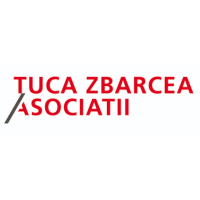
Central Eastern Europe general secretary director | Danone


Cosmin Vinatoru
Central Eastern Europe general secretary director | Danone
Team size: 30
Could you share an example of a time when you came up with an innovation that improved the way your legal team works and did not come at a huge cost?
When I look at innovations in my team, I always consider innovations from two angles – how they impact our people and what the operational impact is. A recent innovation that was implemented in my legal team across the entire region (our five countries) was to combine both legal and compliance functions and simplify the processes and procedures within those functions, by using intensely self-service tools, redesigning the governance processes and educating our colleagues, during a project called KISS (Keep It Smart and Simple), that had as primary objective, the delivering of better value to our internal stakeholders.
What are some of the key developments (legal, geopolitical, or otherwise) that have affected your business over the last year?
The markets we operate in our region are one of the most dynamic, and not only in Europe. Therefore, many developments occurred in the last year that impacted our business. Most important three key developments that have affected our business are political stability (or instability); Bulgaria only recently elected a proper government (it had a caretaker government for more than two years), Romania is ruled by a political coalition that showed a constant ani-business attitude, and Hungary constantly shows anti-EU measures that affect the business. Secondly, inflation was, and still is, one of the highest in the EU. The war in Ukraine also had a huge impact on our countries, as three out of our five countries have direct borders with Ukraine.
How do you think the in-house legal role will evolve in the coming years?
The in-house legal role, whether comprising one legal expert or a big legal team, is becoming increasingly important, and even strategic in the equation of any business, especially for international organisations.
During the last years, the in-house legal function proved its strategic role by being frequently included in the local leadership teams or even in the regional ones. Likewise, companies are increasingly considering the in-house legal role as an extension of the business and not as a platform function.
Organisations are looking at automation to meet their legal needs and I believe the biggest challenge to the in-house legal role will be to embrace automation, even artificial intelligence, in their day-to-day activities.
Do you use any “legal technology” products and, if so, what areas of your work do you find it most useful for?
Legal technology products are highly valued and used within our legal team, across our region. We use technology products for the drafting, reviewing and execution of legal documents for special approvals (such as interactions with government officials, HCPs, or sponsorships; and for law and litigations status. We are also about to implement a new tool for GDPR.
General Secretary | Danone